UGBS NEST hosts a High-Level Engagement Meeting and a Policy Co-development Workshop under the BRIInG Project.
- UGBS NEST

- May 8, 2025
- 2 min read

As part of Phase III of the RISA Bridging the Research Innovation Industry Assimilation Gap through Technology Capacity Building in Rural Ghana (BRIInG) project, the UGBS Innovation and Incubation Hub held a bi-sessional event which consisted of a High-Level Engagement Meeting with government and a policy co- development workshop with public and private stakeholders at the Accra City Hotel.
The high-level engagement meeting aimed to bring together key government stakeholders to align on national priorities, discuss policy directions and foster collaboration for sustainable rural innovation and enterprise growth
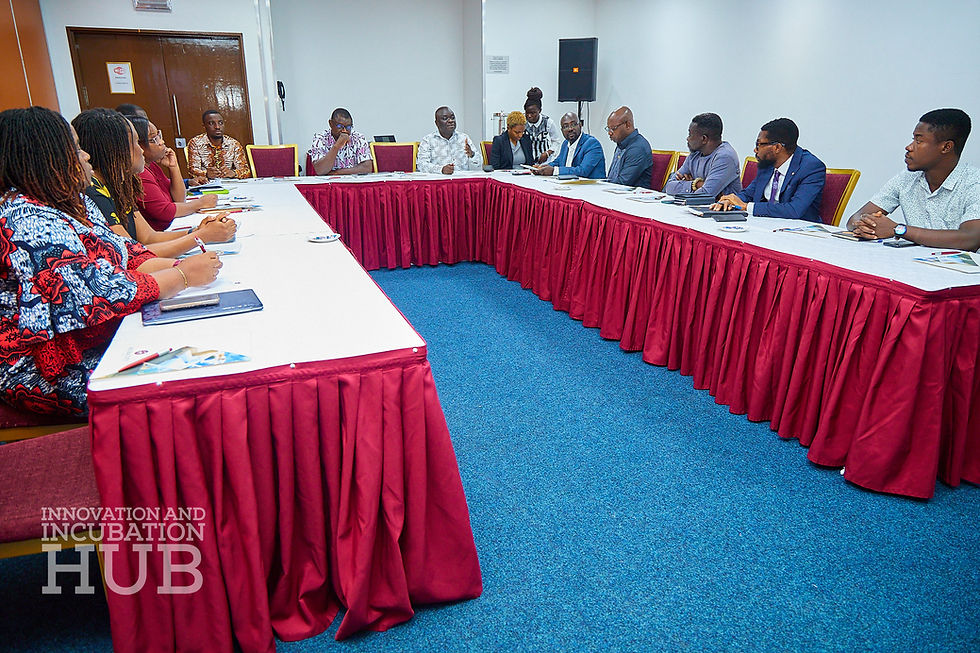
The first session, which involved a round table discussion with high-level government stakeholders, kicked off with a welcome address by Prof. Tweneboah-Koduah (Head of the Marketing and Entrepreneurship department, UGBS), acting as a representative of the Dean of the University of Ghana Business School.
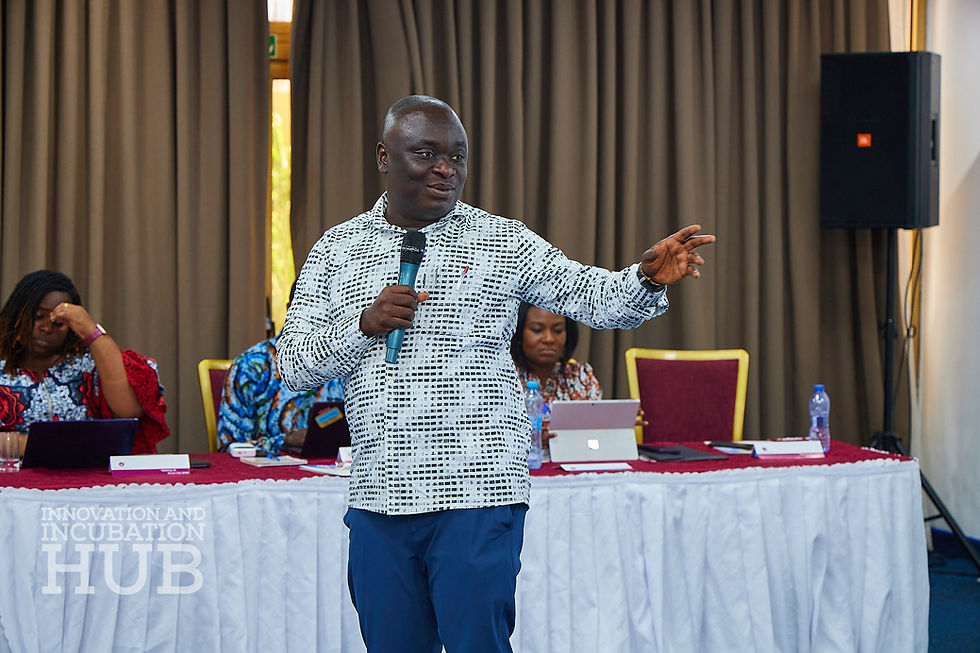
There was a presentation on the RISA Bridging the Research Innovation Industry Assimilation Gap through Technology Capacity Building in Rural Ghana (BRIInG) project and a discussion of the alignment of government policies towards the growth of the project led by Prof. George Acheampong, Project Director of the UGBS Innovation and Incubation Hub
It was a fruitful and productive discussion, with government representatives providing valuable insights into the work being carried out within their respective institutions, as well as opportunities for collaboration on the project. The session was followed by a coffee break.
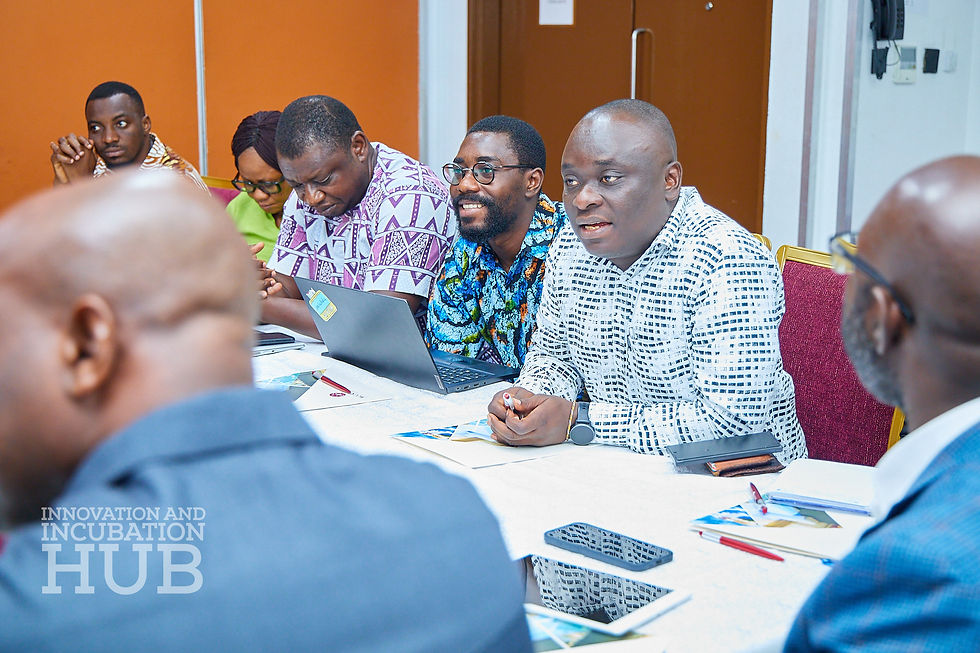
The second session, which was a Policy Co-Development Workshop, featured government agencies, development partners, private sector actors, academic institutions and ecosystem enablers.
The workshop sought to co-develop policies that reflect strategic interventions to align science, technology and innovation (STI) efforts with the needs of rural enterprises and community-based innovation ecosystems
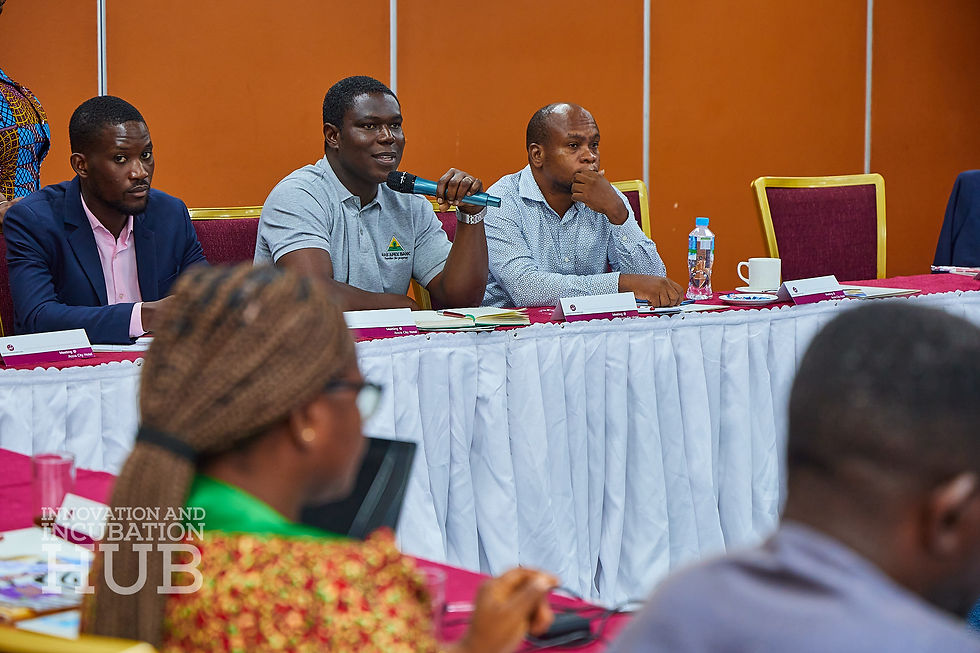
The workshop covered key areas including aligning national science, technology, and innovation (STI) policies with rural development goals; improving coordination among government, academia, and enterprise support bodies; promoting commercialization and integration of innovation hubs into national strategies; ensuring inclusivity for women, youth, and marginalized groups; and establishing systems for monitoring, evaluation, and policy impact tracking.
The session ended with a virtual evaluation of the event by the audience, a photo session, lunch and informal networking amongst the attendees.
This engagement marks a significant step towards integrating government and private stakeholders in advancing rural innovation in Ghana and ensuring the sustainability of the impact of the BRIInG Project.
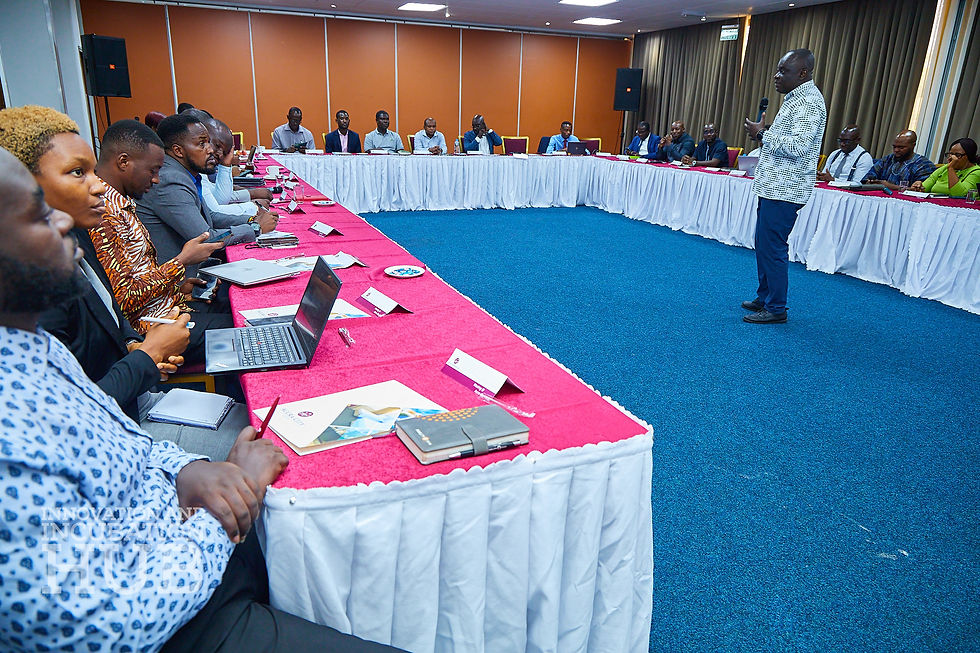
.jpeg)




Comments